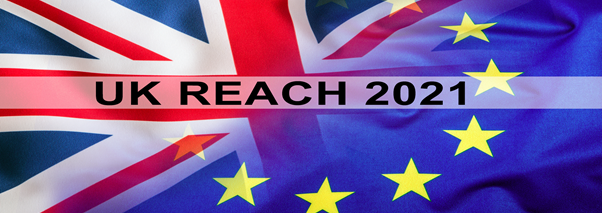The latest survey of British Coatings Federation (BCF) members reveals UK coatings manufacturers are increasingly concerned about the effects of the new UK chemical regulations. Almost 80% of respondents believe UK REACH will impact negatively on their businesses, with the fear that there will be a significant reduction in the portfolio of available chemical substances in the UK compared to the EU, and 67% of respondents fear higher costs in the future where suppliers pass on the costs of complying with UK REACH. Worryingly, 19% of respondents are already reporting that EU suppliers no longer want to export to the UK.
The survey also reports challenges for the sector’s UK exporters – 60% fear that having to abide by EU REACH and CLP rules as a ‘third country’ will impact on their business competitiveness, and more than four in ten respondents (43%) reported increased operating costs of more than 5%, with one in ten (9%) citing a figure of more than 10%. These additional cost estimates have increased considerably since the last BCF Brexit Impact Survey at the end of January. On top of these non-tariff costs, the majority of BCF members are still encountering delays to shipping between UK and the EU, and between GB and NI. Overall, after experiencing nearly six months of the new UK-EU trading relationship, half of respondents are still concerned they risk losing EU export customers, and more than a third now worry about their competitiveness compared to EU counterparts as a result of the Trade and Co-operation Agreement (TCA) trading terms. 70% of coatings companies believe their trade with the EU, the sector’s main export market, will reduce, and only 20% see opportunities with the rest of the world from new trade deals.
Tom Bowtell, CEO of the British Coatings Federation, said: “Our latest survey results show that the added complexity of the new UK chemicals regulations is starting to bite. We have consistently called for UK REACH legislation to be amended to avoid the significant additional costs it will bring to business, as well as its potentially devastating impact on raw material availability to our manufacturers in the UK. Failure to amend UK REACH will lead to our coatings members – and other businesses in similar sectors – seeing unsustainable added complexities and extra costs. Exports of chemical-based products from the UK will be severely threatened by UK REACH, as will foreign direct investment into UK factories, as many companies choose to reduce their manufacturing footprint in the UK and relocate to the EU. Overall, the UK will become a less competitive country to do business in.”
“We welcome the fact that Defra has been engaging with industry on the future of UK REACH over the past few months and hope that, even at this late stage, UK REACH can be amended so that it is less damaging to UK businesses.”
The floating traffic jams off ports. The multiplying costs of moving freight. The resulting shortages of goods. All of this had seemed like an unpleasant memory confined to the COVID-19 pandemic. But no such luck!
An ocean container capacity crunch has hit global trade just as peak shipping season starts, with freight spot rates up some 30% over the past few weeks and heading higher.
The first joint Europe-wide assessment of the drivers and impact of chemical pollution by the European Environment Agency (EEA) and the European Chemicals Agency (ECHA) has concluded that, despite progress in some areas, “more work is still needed to reduce the impact of harmful substances on human health and the environment”. Key findings include:
The severe drought which has forced the Panama Canal, one of the world’s busiest trade passages, to limit daily crossings could impact global supply chains during a period of high demand.
In the early hours of March 26, the Singapore-flagged ship Dali, loaded with 5,000 containers, slammed into Baltimore’s Francis Scott Key Bridge, causing the 1.6-mile (2.5-kilometer) bridge to collapse in a matter of seconds. The Dali was departing for Colombo when the disaster struck. Initial fears were confirmed that half a dozen people lost their lives in the accident.
The pharmaceutical and biotechnology industries constantly seek innovative methods to enhance product stability, solubility, bioavailability and ease of use. Within this realm, CDMOs [Contract Development & Manufacturing Organizations] serve as invaluable partners in the development and production of high-quality drug products.
Chinese New Year 2024 is upon us, disrupting logistics from Asia starting Feb 10th. This event is expected to impact global shipping until Feb 21. Freight rates from Asia has skyrocketed with rates to the US surging by 3.5X and Europe by 6X.
Amid ongoing Red Sea diversions by shipping giants like Maersk, CMA, logistics managers are globally confronting a dual challenge of escalating ocean and air freight prices alongside cargo disruptions due to
Why will CM be the next generation on quality?
